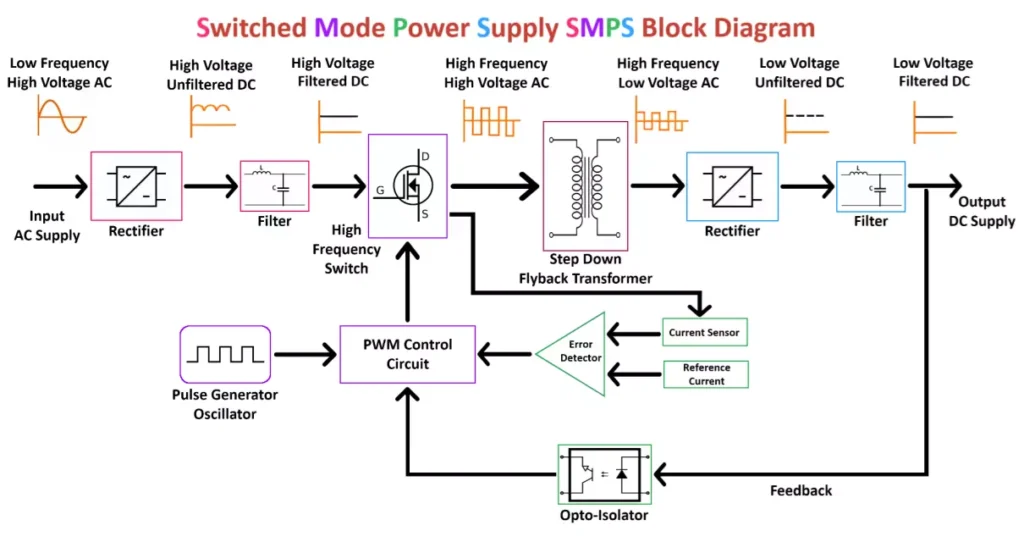SMPS Transient Response Optimization: A Beginner’s Guide for Engineers and Hobbyists

Switch-mode power supplies (SMPS) are widely used in electronics for their efficiency, but they often face a challenge known as “transient response.” This refers to how the power supply reacts when there’s a sudden change in load, like when an appliance or circuit demands more current. If the SMPS can’t respond quickly enough, voltage dips or spikes can occur, affecting the performance of your project.
The Problem :
The key to optimizing transient response lies in improving the speed at which the SMPS adjusts to load changes. This can be achieved by enhancing the feedback loop and adding extra capacitors for stability. The feedback loop controls the SMPS’s output voltage, and by making it faster, the system can compensate for rapid changes in current demand.
Practical Example :
Imagine you’re building a robot that requires an SMPS to power its motors. When the motors suddenly start or stop, the load on the power supply changes rapidly. If your SMPS doesn’t react quickly enough, the voltage might fluctuate, causing erratic behavior. By optimizing the transient response, you can ensure that your robot receives stable power, even during sudden changes.
Sample Calculation :
If you want to optimize the feedback loop, calculate the time constant using the formula:
τ = R × C
Where:
- R = 10kΩ (feedback resistor)
- C = 100nF (feedback capacitor)
The time constant (τ) would be 1ms, which is fast enough to stabilize your SMPS for transient response.
Shop Now!
Optimize your projects with high-quality components like MOSFETs and flux from [SmartXProKits](https://smartxprokits.in/?s=MOSFET flux&post_type=product&type_aws=true). Shop now and support India’s innovation by buying from our Make in India site!




















